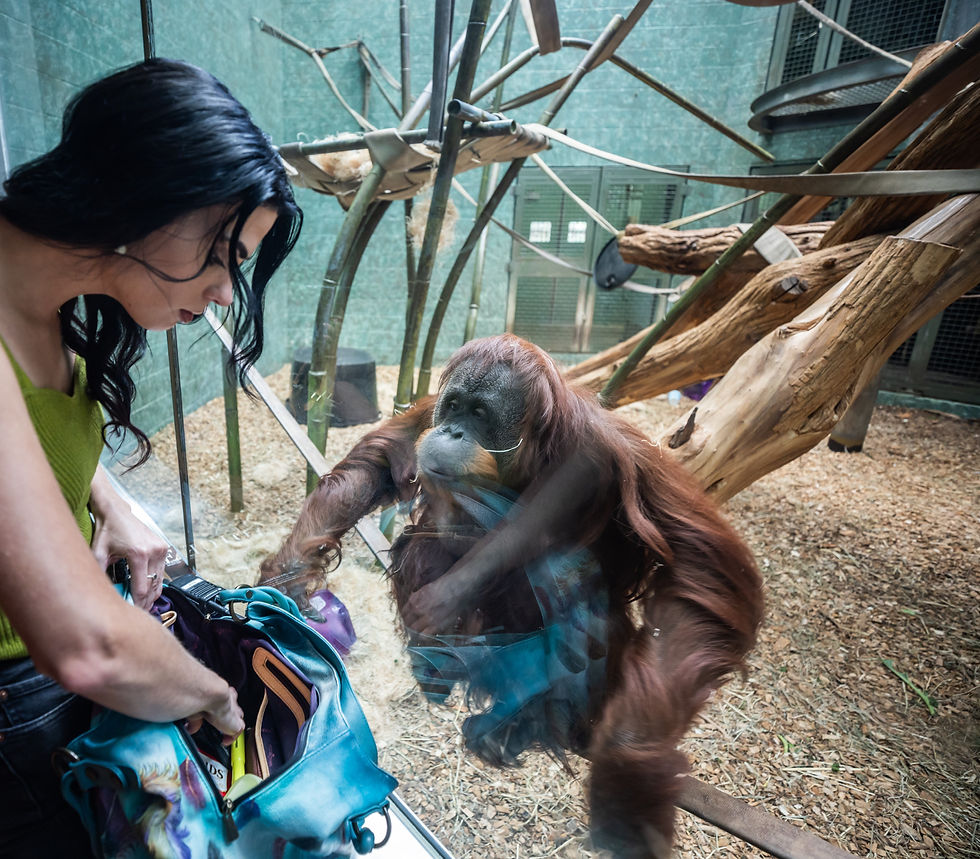Keeping the Faith withThe Rev. Dr. Lauren Jones Mayfield
- Information VOICE_TRIBUNE
- Nov 5, 2025
- 4 min read
By Kevin Murphy Wilson Photos Provided

At the end of last year, the Center for Interfaith Relations welcomed the Rev. Dr. Lauren Jones Mayfield as its new executive director. Since then Mayfield has continued the CIR’s longstanding practice of fostering interfaith dialogue, fighting for social justice, and strengthening communities through common action. Mayfield recently took some time to get acquainted with us ahead of the 2025 Festival of Faiths (The CIR’s highest-profile annual event), which runs from Nov. 12-15 at the Kentucky Center for the Performing Arts. Participants include Sara Callaway, Gerardo Abboud, Ben Sollee, Geshe Kalsang Rapgyal, Fred Nez-Keams, and Valarie Kaur.
VOICE-TRIBUNE: What has the role of religion been in your life?
Lauren Jones Mayfield: “Religion has profoundly guided my life in many necessary ways. It has taught me to question and wonder with integrity. It has inspired my awe, propelled my activism, challenged my privilege, and guided my educational journey. It has taught me to push back on authority when friends are hurting. Religion has disrupted my tolerance for bureaucracy for the sake of bureaucracy, and it has liberated me to fiercely reject spiritual cliches. As cute as they are, idyllic memes often overlook the complexity of our feelings and psyches, which crave something raw, deep, and real. On its best days, religion equips me to pastor and lead with, as Rev. Dr. Jaqui Lewis says, with ‘fierce love.’ On religion’s hard days, it frustrates my longings for simplicity, certainty, and superficial happiness. I’m always learning that ‘Presence’ and ‘Mystery’ are where I most find belonging and peace.”
VT: We are living in a time of immense human and ecological suffering. In light of that, where does a person of faith begin to make a difference?
LJM: “Religion is most relevant when it informs our social engagement. When we truly pay attention and allow current events to shape our theology, we are better positioned to participate in civic practices because we see more intimately and honestly the suffering of others and our planet. In so many of the world’s religions, the ‘Divine’ asks us to pay attention to our suffering. Faith gives us the courage to face it. Thich Nhat Hanh offers Buddhists a lovely mantra that says, “Darling, I know you suffer. Darling, I suffer, too. Please help.” In this recognition of our mutual suffering, we are not only humbled but also have an invitation to stand together in solidarity to help alleviate the suffering. No one person or creature is exempt from pain. Therefore, its inevitable presence is an invitation to embrace and share the redemptive pieces of compassionate healing, those elements of a beautiful life that rise from the ashes of our pain and suffering. So, when we name the pain honestly, when we bravely acknowledge the suffering of others, and when we do not slink away from our responsibility to bear witness to the pain, then we find ourselves emboldened by our faith to respond with a hope that says what we are doing in the world really does make a difference.”
VT: Can you speak to the relationship between the work of a theologian—or pastor—and an activist?
LJM: “I love this question! In other words, ‘How does what we sing in the pew or petition for on the prayer mat impact how we show up in the world?’ Conversely, ‘How do I fight for justice in a way that keeps my faith honest and relevant?’ To have theology without justice is to truncate the work of liberation. To have activism without a grounding in joy, rest, resistance and hope is to burn out or surrender to resentment. I come from the Christian tradition, and in the Gospels, Jesus gets really ticked off one day that folks are not understanding this vital connection between belief and praxis. I think it’s why he provocatively said to the erudite leaders, ‘You can’t serve both God and money.’ It’s not a condemnation of those who are rich so much as it is a lament for those who cannot see our collective need for community and equity, and therefore, our interdependence with one another and the holy sources of our togetherness. Good theology begs for cultural engagement, and when we root our activism in the needs of the community, we, in the words of Dr. King, ‘get free together.’”

VT: How does the Festival of Faiths fit into the broader mission of the CIR?
LJM: “Since its inception, CIR has been committed to celebrating the diversity of faith traditions, highlighting our shared humanity and strengthening communities through common action. As our marquee event, the Festival of Faiths is the embodiment of this mission. We bring together people not only of many different religious and spiritual backgrounds, but also varied cultures, beliefs and lived experiences. The festival is a space where we listen to one another with a goal of learning and making meaningful connections. Over the course of several days, people with vastly different perspectives and insights come together with open hearts and minds, and the result is an energy that has the potential to revolutionize ourselves, our city, and beyond. Belonging is an antidote to our isolation. We are all lonely at times. We are all tired more often than not. We fear for our democracy, and we hope for an end to war. We need to find our place in this world so that we can stand for what our faith dictates. It’s a long way of saying that I’m most excited about this festival because it invites us into these sacred spaces that kindle perseverance and honor our resilience as people of ‘Divine’ light.”
For more information visit festivaloffaiths.org




Comments